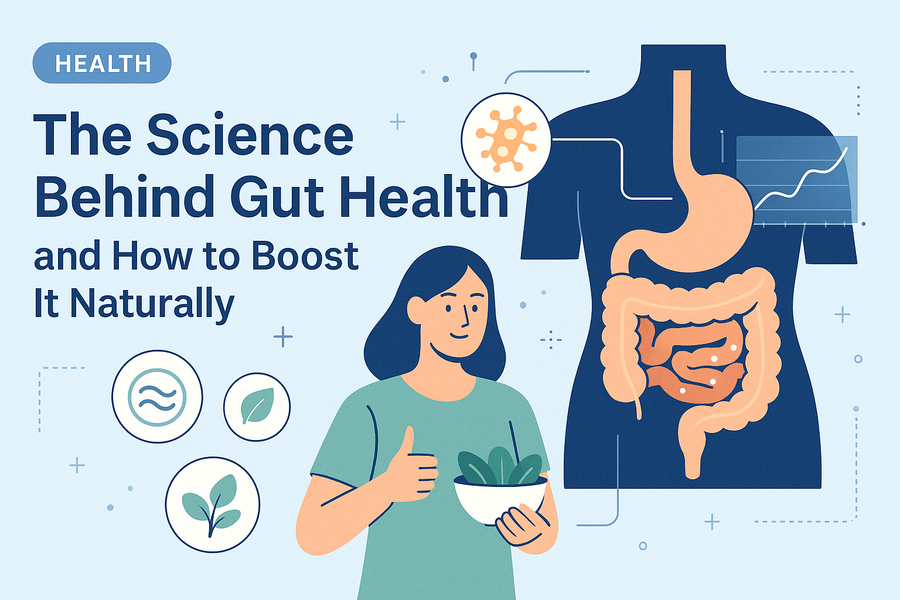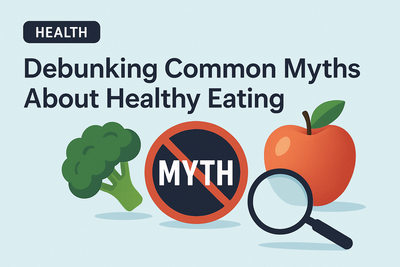The Science Behind Gut Health and How to Boost It Naturally
Introduction
Gut health has become a hot topic in recent years—and for good reason. Your gut is home to trillions of microorganisms, collectively known as the gut microbiome, which play a vital role in your overall health. From digestion and immunity to mental well-being, the condition of your gut can influence numerous aspects of your life. But what exactly is gut health, and how can you improve it naturally? Let's break down the science and explore actionable tips to nurture your gut.

Understanding Gut Health
What Is the Gut Microbiome?
The gut microbiome is a complex community of bacteria, viruses, fungi, and other microbes that live in your digestive tract—primarily in the intestines. This ecosystem helps digest food, absorb nutrients, and fend off harmful pathogens. A balanced microbiome supports healthy bodily functions, while an imbalance (also called dysbiosis) can contribute to issues like bloating, inflammation, allergies, and even mood disorders.
The Gut-Brain Connection
Scientists have discovered a strong connection between the gut and the brain, often referred to as the "gut-brain axis." This communication network means that your gut can influence mental health, and vice versa. For example, serotonin—a key neurotransmitter that regulates mood—is predominantly produced in the gut. That’s why maintaining a healthy gut can also support emotional well-being.
Natural Ways to Boost Gut Health
1. Eat a Diverse, Fiber-Rich Diet
A varied diet rich in whole foods promotes a diverse microbiome. Fiber, found in fruits, vegetables, legumes, and whole grains, acts as fuel for beneficial gut bacteria. Aim to include different plant-based foods in your meals to encourage microbial diversity.
2. Incorporate Fermented Foods
Fermented foods like yogurt, kefir, sauerkraut, kimchi, and kombucha are natural sources of probiotics—live bacteria that can enhance your gut flora. Including these in your diet can help maintain a healthy microbial balance.
3. Avoid Overuse of Antibiotics
While antibiotics are essential for fighting infections, overusing them can wipe out both harmful and beneficial bacteria. Always use antibiotics as prescribed and discuss alternatives with your healthcare provider when appropriate.
4. Reduce Stress
Chronic stress can negatively affect your gut by disrupting the balance of your microbiota. Techniques such as meditation, deep breathing, exercise, and spending time in nature can help manage stress and, in turn, support your gut health.
5. Stay Hydrated
Water aids digestion and the absorption of nutrients. Staying well-hydrated helps the mucosal lining of the intestines, keeping your gut functioning smoothly.
6. Get Quality Sleep
Poor sleep can negatively alter your gut microbiome, leading to imbalances. Prioritize 7–9 hours of quality sleep each night to keep your gut—and your entire body—in peak condition.
Conclusion
Your gut does far more than just process food—it plays a central role in immunity, mood regulation, and overall health. By understanding the science behind gut health and making simple, natural lifestyle changes, you can cultivate a thriving microbiome. Start small: add more fiber to your plate, enjoy a serving of fermented foods, or simply take a few minutes each day to unwind. Your gut will thank you.








